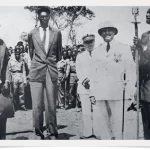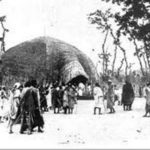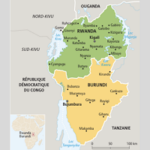The System Of Delegated Power And Social Cohesion
We have noted that the total body of office-holders within the administration and army structures were largely drawn from lineages related to the king. However within this limited sphere of recruitment, access to individual office was largely through achievement, in the sense that particular offices were not the monopoly of certain lineages nor was there any guarantee of retaining an office within the lineage through succession or direct appointment by a predecessor. Moreover there was no necessary security in office. An appointment for office was not for life but its retention depended on an individual’s ability in holding office. A chief could be either promoted, demoted orremoved from office altogether. In this respect there was a greater element of achievement as opposed to ascription in the recruitment to and retention of office within the delegated power structure than in the system of offices at the court.
A direct result of this characteristic of the delegated power structure was to encourage competition for the king’s favour, since a position in the power-holding group depended ultimately on the king as a result of this internal struggle and competition among potential and actual office holders, the lineages holding a monopoly of power did not present themselves as an unified group vis -à-vis the nonpower- holding section of the population. This was all the more important as the non-power-holding section was drawn into this personal struggle for the king’s favour.
One of the factors determining the king’s favour was related to the amount of support which a chief could muster. This was demonstrated by the quantity of the taxation obtained, especially as neither the amount nor in all cases the times for payment were specified. Another way in which the extent of a chief’s support or lack of support was demonstrated was the number of complaints made at the court, not only by his subjects but also by competitors for office. The force of the charge made by competitors was often related to the actual following which could be mustered by the office-holder and his competitor respectively. All these processes made for a sense of participation by the ruled in the values underlying the holding of office.
The transcendental character of the kingship was concomitant with a role expectancy on the part of all his subjects that the king had the obligation to protect them. This expectation by the ruled was potentially threatened in the monopoly of office by close relatives of the king. It was the element of achievement and insecurity in obtaining and retaining office which enabled the king to prevent conflicts presenting themselves in a structural form between rulers and ruled. On the contrary by removing and replacing individual chiefs who no longer commanded the support of their subjects, the king reduced conflicts to the level of inter-personal relationships.
This emphasis on the inter-personal nature of conflicts between chiefs and subjects was given further emphasis in the fact that tension was not only confined to chiefs and Hutu subjects but also occurred between chiefs and Tutsi subjects, especially in relation to competition for office.
Thus the values embodied in the kingship together with the effective control of power by the king prevented grievances from taking the form of protest against the system of office-holding. Protest was rather directed against the evidently personal exercise of power by individual chiefs. Related to this is the fact that the instrument of coercive power, the warrior units of the army, were under the direct control of the king. This was ensured through the individual recruitment of warriors from different areas of the country in contrast to the rest of the army which incorporated lineage groups on a territorial basis. It was further ensured through the demobilisation of warrior units at the accession of a new king who built up his own personally selected army unit. The recruitment of warriors by the king from lineages related to him through ties of kinship or clientship ensured that the active military force was a reliable instrument for protecting the power structure. Nevertheless its personal control by the king prevented its use by locally powerful chiefs or lineages as a threat to the Mwami and his control over the distribution of power.




